#jack walsh
Explore tagged Tumblr posts
Text







The Second Coming (1995) // dir. Jack Walsh
275 notes
·
View notes
Text




✨️ W a t c h i n g ✨️
#PINK FLAMINGOS (1972)#JOHN WATERS#DIVINE#Harris Glenn Milstead#david lochary#mary vivian pearce#mink stole#Danny Mills#edith massey#Channing Wilroy#Cookie Mueller#Paul Swift#Jack Walsh#comedy#underground film
5 notes
·
View notes
Text
I'll never forget the moment when Dean said "I'm Alonzo Mosley and this is my partner Eddie Moscone."
And I fangirled so hard because I had just watched that movie with my dad.
9 notes
·
View notes
Text
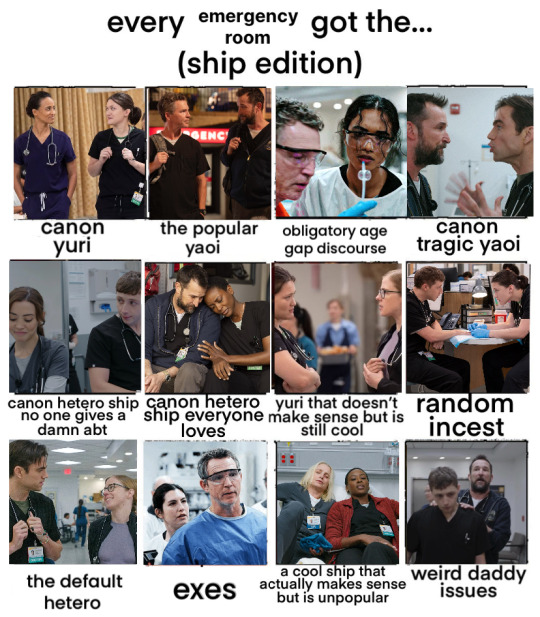
#DISCLAIMER that this is all in good fun and i believe in ship and let ship#persomally i dont ship anything really but glad yall are having fun!!#and yes: i bravely forayed into the ao3 tags to see what people were shipping on here#the pitt#the pitt hbo#the pitt 2025#mel king#michael robinavitch#trinity santos#frank langdon#michael rabinavitch#melissa king#heather collins#samira mohan#dennis whitaker#jack abbot#dana evans#emery walsh#yolanda garcia#nurse kim#the pitt meme#the pitt memes
4K notes
·
View notes
Text
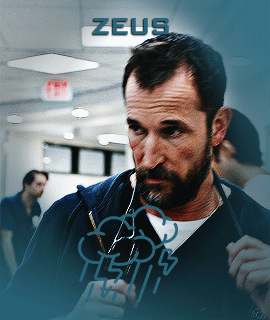
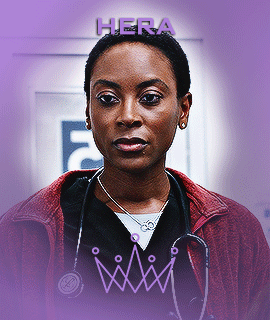
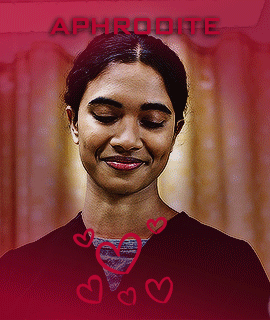
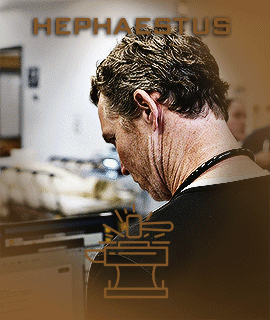
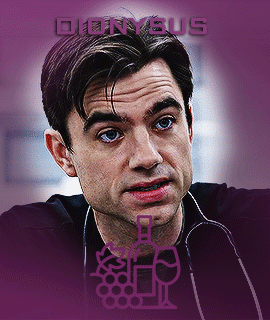
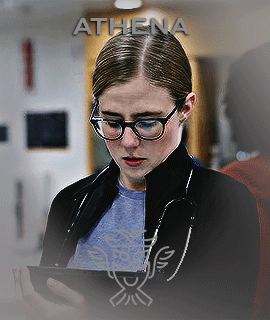
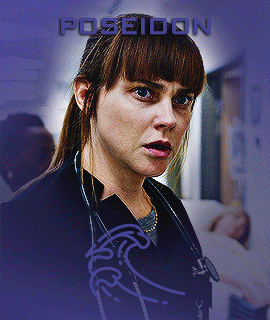
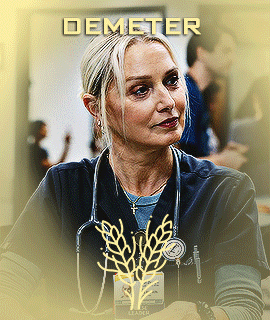
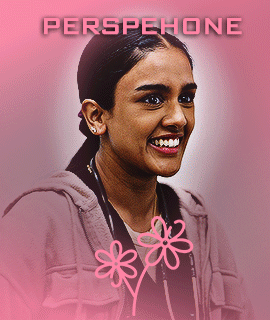
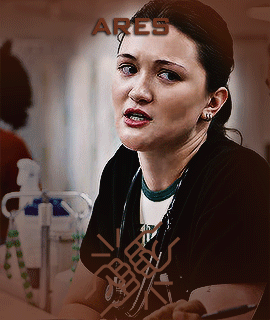
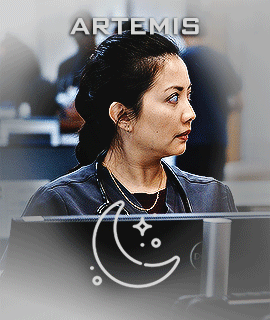

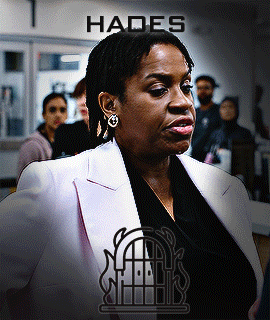
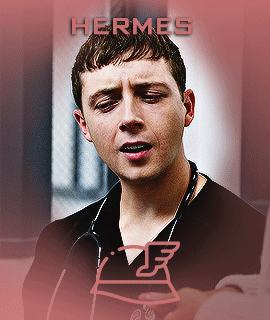
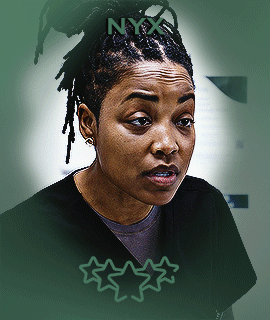
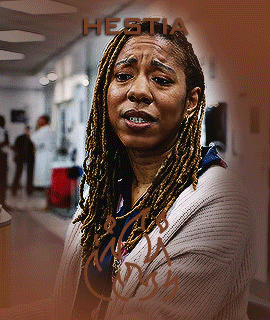
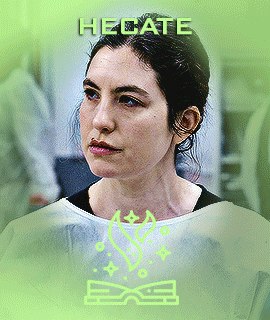
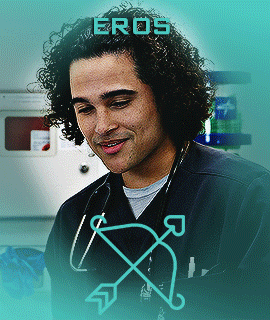
🏛️ THE GREEK PITT-THEON 🏛️
#the pitt#thepittedit#tusermichi#tvdoctors#thepittsource#userairi#tuserhan#useraurore#svenjalook#usereena#useremz#userpayel#dailyflicks#tvcentric#greek mythology#michael robinavitch#jack abbot#heather collins#frank langdon#myedit#melissa king#dana evans#samira mohan#cassie mckay#dennis whitaker#gloria underwood#trinity santos#emery walsh#parker ellis#mateo diaz
2K notes
·
View notes
Text



#samira mohan#jack abbot#emery walsh#the pitt#thepittedit#the pitt 1x14#mohan girl idk what you're saying but they think you're cute
2K notes
·
View notes
Text
writing fanfiction is just fingers clenching over a keyboard as you ferally mutter i just want this little guy to be held, damn it and proceeding to hurt said little guy (gn) for at least 20k words before you actually give them their hug
#this is what you do to a blorbo#izzy hands#eleventh doctor#steve harrington#peeta mellark#yusuf al kaysani#nicolo di genova#thirteenth doctor#jim jimenez#tony stark#jack harkness#ianto jones#edmund pevensie#susan pevensie#casey rhodes#ziggy grover#abed nadir#alec lightwood#magnus bane#kurt hummel#regina mills#connor walsh#hector rivera#five hargreeves#allison hargreeves#klaus hargreeves#listen i cannot be held accountable for what i do to the characters#merlin#arthur pendragon
9K notes
·
View notes
Text
youtube
#funny reactions#reppyreacts#A Simple Plan#First time watching#DRAMA MOVIE REACTION#Sam Raimi#Scott B. Smith#Bill Paxton#Hank#Billy Bob Thornton#Jacob#Bridget Fonda#Sarah#Brent Briscoe#Lou#Jack Walsh#Tom Butler#Chelcie Ross#Carl#Becky Ann Baker#Nancy Chambers#Gary Cole#Baxter#Bob Davis#Agent Renkins#Youtube
0 notes
Text










Day shift meets Night | THE PITT 1x12
#michael robinavitch#jack abbott#melissa king#dana evans#nurse dave miller#dave miller#emery walsh#john shen#parker ellis#robby & abbott#abbott & mel#dana & dave#robby & shen#robby x shen#robby & ellis#mohan & abbott#the pitt#tv: the pitt#thepittedit#thepittsource#dailyflicks#tvarchive#chewieblog#userbbelcher#tvdoctors#*by me#the pitt spoilers#blood tw#injury tw#***
965 notes
·
View notes
Text








the pitt on twitter part 6
#these actually got me to start a jackrobby fanfic with robby and walsh as besties lmao#lets hope i can actually finish and post it#social media au#incorrect quotes#the pitt#twitter au#michael robinavitch#emery walsh#jack abbot#frank langdon#robby robinavitch#john shen#michael robby robinavitch#parker ellis#dr abbot#mel king#trinity santos#dr robby#dennis whitaker#samira mohan#yolanda garcia#jackrobby#rabbot#heather collins#mateo diaz#dana evans#the pitt memes
481 notes
·
View notes
Text










#the pitt#the pitt bts#why no tracy :(#noah wyle#michael robinavitch#supriya ganesh#samira mohan#patrick ball#frank langdon#fiona dourif#cassie mckay#mel king#taylor dearden#shawn hatosy#jack abbot#katherine lanasa#dana evans#isa briones#trinity santos#gerran howell#dennis whitaker#jalen thomas brooks#mateo diaz#shabana azeez#victoria javadi#tedra millan#emery walsh
824 notes
·
View notes
Text
We don't focus enough on the fact that most nights the Pitt is run by Abbot, Shen, Ellis and Walsh, four feral doctors running on sarcasm and frappucinos, without Dana's supervision
If they put Santos on the night shift with them even just once, the PTMC is going to explode.
505 notes
·
View notes
Text




#the pitt#gifs*#jack abbot#emery walsh#samira mohan#dilfs*#thepittedit#tvedit#cinematv#dailyflicks#tvarchive#the pitt spoilers#thepittsource#cutie patootie spotted 🥰#scheduled post#thepitt*#hatosy*
441 notes
·
View notes
Text
Pittsburgh’s hottest hospital is...Pittsburgh Trauma Medical Center

Run by a woman named Gloria wearing a Hillary Clinton-Approved pantsuit, it’s the only place in town you can crack a cold one with your attending after a mass casualty event. Don't be thrown off when you're greeted at the door by a woman in handcuffs calling you a fruitcake – you’re in the right place.
This place has everything: Trauma, egg salad, pig tail catheters, sad boys, unsupervised REBOA’s, a neurodivergent queen, The Kraken, doctors bumming Librium, antivaxxers, a non-practicing-Jewish man dime, a flight risk war medic, and a roof perfect for diving off of. It’ll make you finally stop asking, “are all doctors supposed to be that fuckable?”
Look who’s in the waiting room—is that Pittsburgh’s own Michael Keaton? No, it's a family of four rats hitching a ride in on a hobo
#the pitt#the pitt hbo#stefon#snl#the hottest club is#PTMC#Dr robby#dr mohan#dennis whitaker#dr robinavitch#noah wyle#thepittedit#dr langdon#dr jack abbot#dr abbot#jack abbot#javadi#dr javadi#dr santos#dr garcia#dr walsh#dr shen#trinity santos#dr king#dr melissa king#frank langdon#dr collins
279 notes
·
View notes
Text


the LOOK that Robby gives her after Abbott says "dr. Walsh" and gives her the folder. And then Robby and Abbott glance at each other. HMMMMM
#the pitt#the pitt hbo#jack abbott#jack abbot#dr abbott#dr abbot#emery walsh#dr walsh#michael robinavitch#dr robinavitch#dr robby#medical drama#tv shows#tv series
271 notes
·
View notes
Text
A Lesson In Fear Extinction | part I
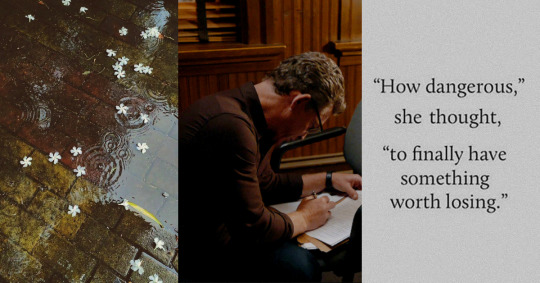
pairing: professor!Jack Abbot x f!psych phd student reader summary: You’re a senior doctoral student in the clinical department, burned out and emotionally barricaded, just trying to finish your final few years when Jack Abbot—trauma researcher, new committee member, and unexpectedly perceptive—starts seeing through you in ways you didn’t anticipate wc: 11.9k content/warnings: academic!AU, slow burn (takes places over 3 years lbffr), frat boys being gross + depictions of unwanted male attention/verbal harassment, academic power dynamics, emotional repression, discussions of mental health, mutual pining, hurt/comfort, angst, so much yearning, canon divergence, no explicit smut (yet/tbd but still 18+ MDNI, i will fight u) a/n: this started as a slow-burn AU and spiraled into a study in mutual repression, avoidant-attachment, and me trying to resolve my personal baggage through writing ~yet again~ p.s. indubitably inspired by @hotelraleigh and their incredible mohan x abbot fic (and all of their fics that live in my head rent free, tyvm) i hope you stay tuned for part II (coming soon, pinky promise) ^-^

The first thing you learn about Dr. Jack Abbot is that he hates small talk. That, and that he has a death glare potent enough to silence even the most self-important faculty members in the psych department.
The second thing you learn is that he runs his office like a bunker—door usually half-shut, always a little too cold, shelves lined with books no one's touched in decades. You step inside for your first meeting, and it feels like entering a war room.
"You’re early," he says, without looking up from the annotated manuscript he’s scribbling on.
"It's the first day of the school year."
"Same difference."
You take a seat, balancing your laptop on your knees. Your fingers hover over the keyboard, unsure if you should even bother.
Dr. Abbot finally glances up. Hazel eyes, sharp behind silver-framed glasses. "Let’s make this easy. Tell me what you’re working on and what you want from me."
You hesitate. Not because you don’t know. You’ve been rehearsing this on the walk over. You just hadn’t planned on him cutting through the pleasantries quite so fast.
"I’m running a mixed methods study on affective forecasting errors in anxiety and depression. Lab-based mood induction, longitudinal survey follow-up, and semi-structured interviews. I'm trying to map discrepancies between predicted and experienced affect and how that mismatch contributes to maladaptive emotion regulation patterns over time."
A beat.
"So you're testing whether people with anxiety and depression are bad at predicting their own feelings."
You blink. "Yes."
"Good. Start with that next time."
You bite the tip of your tongue. Roll the flesh between your teeth to ground yourself. There is no next time, you want to say. You’re only meeting with him once, to get sign-off on your committee. He wasn’t your first choice. Wasn't even your second. But your advisor's on sabbatical, and the other quantitative faculty are already overbooked.
Dr. Abbot leans back in his chair, examining you. "You’re primary is Robby, right?"
"Technically, yes."
He hums, not bothering to hide the skepticism. "And you want me on your committee because...?"
"Because you published that meta-analysis on PTSD and chronic stress. Your work on cumulative trauma exposure and dysregulated affect dovetails with mine on stress-related trajectories for internalizing disorders and comorbidity. I thought you might actually get what I’m trying to do."
His brow lifts, just slightly. "You did your homework."
"Well, I’m asking you for feedback on a dissertation that will probably make me break down countless times before it's done. Figured I should know what I was getting into."
Dr. Abbot's mouth twitches. You wouldn’t call it a smile, exactly. But it’s something.
"Alright," he says, flipping open a calendar. "Let’s see if we can find a time next week to go over your proposal draft."
You arch a brow. "You’ll do it?"
"You came in prepared. And you didn’t waste my time—as much as the other fourth years. That gets you further than you’d think around here."
You nod, heart thudding. Not because you’re nervous.
Because you have the weirdest feeling that Jack Abbot just became your biggest academic problem—and your most unexpected ally.

You see him again the next day. Robby was enjoying his last remaining few weeks of paternity leave and graciously asked Jack to sub for his foundations of clinical psychology course. Jack preferred the word coerced but was silenced by a text message with a photo of a child attached. The baby was cute enough to warrant blackmail.
He barely got through the door intact: balancing a coffee cup between his teeth, cradling a half-closed laptop under one arm, and wrangling the straps of a clearly ancient backpack. His limp is more pronounced today. The small cohort watches him with a mix of curiosity and vague alarm.
You’re in the front row, laptop open before he even gets to the podium.
Jack drops everything onto the lectern with a heavy exhale, then glances around. His eyes catch on you and pause—not recognition yet, just flicker. Then he turns back to plug in his laptop.
You don’t expect to see him again two days later, striding into the 200-level general psych class you TA. The room’s already three-quarters of the way full when he walks in, and it takes him a moment before he does a brief double-take in your direction.
You return your attention to your notes. Jack stares.
"Small world."
"Nice to see you too, Dr. Abbot."
He sighs. "Why am I not surprised."
"Because the annual stipend increase doesn't adjust for inflation, I'm desperate, and there aren't enough grants given the current state of events?"
Jack mutters something under his breath about cosmic punishment and unfolds the syllabus from his coat pocket like it personally betrayed him.
When he finally settles at the front—coffee in one hand, laptop balancing precariously on the desk—you catch him bending and straightening his knee just under the edge of the table, jaw set tight. It’s subtle. Anyone else might miss it. But you’ve been watching.
You say nothing.
A few students linger with questions—mostly undergrads eager to impress, notebooks clutched to their chests, rattling off textbook jargon in shaky voices. Jack humors them, mostly. Nods here, clarification there. But his eyes flick to you more than once.
You take your time with the stack of late enrollment passes. He’s still watching when you sling your tote over one shoulder and head for the door.
Probably off to the lab. Or your cubicle in the main psych building. Wherever fourth years disappear to when they aren’t shadowing faculty or training underqualified and overzealous research assistants on data collection procedures.
Jack shifts his weight onto his good leg and half-listens to the sophomore with the over-highlighted textbook.
His eyes stay on you when you walk out.

You make it three steps past the stairwell before the sound of your name stops you. It’s not loud—more like a clipped murmur through the general noise of backpacks zipping and chairs scraping—but it cuts straight through.
You turn back.
Jack’s still at the front, the stragglers now filtering out behind him. He doesn’t wave. Doesn’t beckon. Just meets your gaze like he already knows you’ll wait. You do.
He makes his way toward you slowly, favoring one leg. The closer he gets, the more you notice—the way his hand tightens on the strap of his backpack, the exhausted pull at his brow. He’s not masking as well today.
"Thanks for not saying anything," he says when he stops beside you.
You shrug. "Didn’t seem like you needed an audience."
Jack huffs a laugh, dry and faintly surprised. "Most people mean well, but—"
"They hover," you finish. "Or overcompensate. Or say something weird and then try to walk it back."
"Exactly."
You both stand there for a beat too long, campus noise shifting around you like a slow tide.
"I was heading to the coffee shop," you say finally. "Did you want anything?"
Jack tilts his head. "Bribery?"
"Positive reinforcement." The words trail behind a small grin.
He shakes his head, mouth twitching. "Probably had enough caffeine for the day."
The corner of your lip curls higher. "As if there's such a thing."
That earns you a half-huff, half-scoff—just enough to let you believe you might have amused him.
"Well," you say, taking a step backward, "I’ve got three more RAs to train and one very stubborn loop to fix. See you around, Dr. Abbot."
"Good luck," he says, voice low but steady. "Don’t let the building eat you alive."

The next time he sees you, it’s after 10 p.m. on a Thursday.
You hadn’t planned on staying that late. But the dinosaur of a computer kept crashing, two of your participants no-showed, and by the time you’d salvaged the afternoon’s data to pull, it was easier to crash on the grad lounge couch than face the lone commute back to your apartment.
You must’ve fallen asleep halfway through reading feedback from your committee—curled up with your legs splayed over the edge of the couch and laptop perched on the cheap coffee table. The hall is mostly dark when Jack walks past. He’s heading toward the parking lot when he stops, mid-step.
For a moment, he just stands there, taking in the sight of you tucked awkwardly into yourself. You look comfortable in your oversized hoodie, if not for the highlighter cap still tucked between your fingers and mouth parted in a silent snore.
He doesn’t say anything. Just watches you breathe for a few seconds longer than necessary.
Then, maybe with more curiosity than concern, he raps his knuckles gently against the doorframe. Once. Twice. Three times for good measure.
No response.
Jack steps inside and calls out, voice pitched low but insistent. "This is not a sustainable sleep schedule, you know."
You stir—just barely. A vague groan escapes your lips as you shift and swat clumsily in the direction of the noise. "Just five more minutes... need to run reliability analyses..."
Jack chuckles, genuine and surprised.
He leans against the wall, watching you with no urgency to leave. "Dreaming about data cleaning. Impressive."
You make a small, unintelligible noise and swat again, this time with a little more conviction. Jack snorts.
After a moment, he sighs. Then carefully crosses the room, picks up the crumpled throw blanket from the floor, and drapes it over you without ceremony.
He flicks off the overheads and closes the door behind him with a quiet click. The hallway hums with fluorescent buzz as he limps toward the parking lot, shoulders tucked in against the chill.

A few weeks into the semester, the rhythm settles—lecture, discussion, grading, rinse and repeat. But today, something shifts.
You’re stacking quizzes at the front of the general psych lecture hall when Jack catches movement out of the corner of his eye. Two male students—frat-adjacent, all oversized hoodies and entitled swagger—approach your desk.
Jack looks up from his laptop. His expression doesn’t shift, but something in his posture does—a subtle, perceptible freeze. He watches from where he’s still packing up—hand paused on his laptop case, jaw tight, eyes narrowing just slightly as he takes in the dynamic. There’s a flicker of tension behind his glasses, a pause that says: if you needed him, he’d step in.
They swagger up with the kind of smirks you’ve seen too many times before—overconfident, under-read, and powered by too many YouTube clips of alpha male podcasts.
"Yo, TA—what’s up?" one says, leaning far too close to your desk. "Was gonna ask something about the exam, but figured I’d shoot my shot first. You free later? Coffee on me."
His friend elbows him like he’s a comedic genius. "Yeah, like maybe we could pick your brain about, like, how to get into grad school. You probably have all the insider tricks, right?"
You don’t even blink.
"Sure," you say sweetly. "I’d love to review your application materials. Bring your CV, your transcript, three letters of rec, and proof that you’ve read the Title IX policy in full. Bonus points if you can make it through a meeting without quoting Andrew Tate—or I’ll assume you’re trying to get yourself suspended."
They stare. You smile.
One laughs uncertainly. The other mutters something about how "damn, okay," and both slink away.
Jack’s jaw works once. Then relaxes.
You glance up, like you knew he’d been watching.
"Well handled," he says, voice low as he steps beside you.
You offer a nonchalant shrug. "First years are getting bolder."
"Bold is one word for it."
You hand him a stack of leftover forms. "Relax, Dr. Abbot. I’ve survived undergrads before. I’ll survive again."
Jack gives a small, amused grunt. Then, after a beat: "You can call me Jack."
You glance up, brow raised.
"Feels a little formal to keep pretending we’re strangers.
You don’t say anything right away. Just nod once, almost imperceptibly, then go back to gathering your things.
He doesn’t push it.

It’s raining hard enough to rattle the windows.
You’re having what your cohort half-jokingly calls a "good brain day"—sentences coming easy, theory clicking into place, citations at your fingertips. You barely notice the weather.
Jack glances up from your chapter draft as you launch into a point about predictive error and affective flattening. He doesn't interrupt. His eyes follow how you pace—one hand gesturing, the other holding your annotated copy, words sharp and certain.
Eventually, you pause mid-thought and glance at him.
He's already looking at you.
Your hand flies up to cover your mouth. "Shit. I'm sorry—"
Jack shakes his head, lips twitching at the corners. "Don’t apologize. That was… brilliant."
You blink at him, the compliment stalling your momentum. The automatic response bubbles up fast—some joke to deflect, to downplay. You don't say it. Not this time.
Still, your fingers tighten slightly on the edge of the desk. "I don't know about brilliant..."
Jack doesn’t look away. "I do."
The silence stretches—not awkward, exactly, but thick. His gaze doesn’t waver, and it holds something steady and burning behind it.
You glance down at your annotated draft. The silence stays between you like a taut wire.
Jack doesn’t fill it. Just waits—gaze unwavering, as if giving you time to come to your own conclusion. No pressure, no indulgent smile. Just a quiet, grounded certainty that settles between you like weight.
Eventually, you exhale. The tension loosens—not completely, but enough to keep going.
"Okay," you murmur, almost to yourself.
Jack nods once, slowly. Then gestures at your printed draft. "Let’s talk about your integration of mindfulness in the discussion section. I’ve got a few thoughts."

Ethics is the last class of the week. The room's heating is inconsistent, the lights too bright, and Jack doesn’t know how the hell he ended up covering for Frank Langdon. Probably the same way he got stuck with Foundations and General Psych: Robby. The department’s too damn small and apparently everyone with a baby gets to vanish into thin air.
He steps into the room ten minutes early, coffee already lukewarm, and makes a half-hearted attempt to adjust the podium screen. The first few students trickle in, then more. He flips through the lecture slides, barely registering them.
And then he sees you.
You’re near the back, chatting with someone Jack doesn’t recognize. Another grad student by the look of him—slouched posture, soft jaw, navy sweater. The guy’s grinning like he thinks he’s charming. He leans in a little too close to your chair. Says something Jack can’t hear.
Jack tells himself he’s only looking because the guy seems familiar. Maybe someone from Walsh’s lab. Or Garcia’s.
You laugh at something—light, genuine.
Jack tries not to react.
Navy Sweater says something else, more animated now. He gestures to your laptop. Points to something. You nudge his hand away with a grin and say something back that makes him blush.
Jack flips the page on his lecture notes without reading a word.
You’re still smiling when you finally glance up toward the podium.
Your eyes meet.
Jack doesn’t look away. But he doesn’t smile either.
The guy beside you says something else. You nod politely.
But you’re not looking at him anymore.

The next time you're in Jack’s office, the air feels different—autumn sharp outside, but warm in here.
He notices things. Not all at once, but cumulatively.
Your hair’s longer now. It’s subtle, but the ends graze your jaw in a way they hadn’t before. You’ve started wearing darker shades—amber, forest green, burgundy—instead of the lighter neutrals from early fall. Small changes. Seasonal shifts.
He doesn’t say anything about any of that.
But then he sees it.
A faint smudge of something high on your neck, near the curve of your jaw.
"Rough night?" he asks, lightly. The tone’s casual, but his eyes stay there a second too long.
You look up, blinking. Then seem to realize. "Oh. No, it’s—nothing."
He raises an eyebrow, just once. Doesn’t press.
What you don’t say: you went on a date last night. Your first real date since your second year. Navy Sweater—Isaac—had been sweet. Patient. Social psych, so he talked about group dynamics and interdependence theory instead of clinical cases. A refreshing change from your usual context. He’d been pining for you since orientation. You finally gave him a chance.
You’re not sure yet if it was a mistake.
Jack doesn’t ask again. He just shifts his attention back to your printed draft, flipping a page without comment.
But you can feel it—that subtle change in the room. Like something under the surface has started to stir.
Jack doesn’t speak again for the rest of the meeting, at least not about anything that isn’t your manuscript. But the temperature between you has shifted, unmistakable even in silence.
His feedback is sharp, incisive, and you take it all in—but your focus tugs sideways more than once.
You start to notice little things. The way his hands move when he talks—precise, economical, almost always with a pen twirling between his fingers. The way he reads with his whole posture—leaned in slightly, brows furrowed, lips moving just barely like he’s tasting the cadence of each sentence. How he always wears button-downs, sleeves pushed up to the elbows, like he’s never quite comfortable in them.
You catch the faint scruff at his jawline, the flecks of gray you hadn’t seen before in the fluorescent classroom light. The quiet groan of his office chair as he shifts to get more comfortable—though he never quite does. The occasional tap of his fingers against the desk when he’s thinking. The way his eyes track you when you pace, like he’s cataloging your rhythm.
When he leans in to gesture at a line in your text, you’re aware of his proximity in a way you hadn’t been before. The warmth that radiates off him. The way his breath hitches just slightly before he speaks.
When you ask a clarifying question, he meets your eyes and holds the gaze a fraction too long.
It shouldn’t mean anything. It probably doesn’t.
Still, when you pack up to leave, you don’t rush. Neither does he.
He walks you to the door, stops just short of it.
"Good luck with the coding," he says.
You nod. "Thanks. See you next week."
He hesitates, then nods once more. "Yeah. Next week."
And when you leave his office, the echo of that pause follows you down the hall.

At home, Jack goes through the same routine he always does. He hangs up his coat. Places his keys in the ceramic dish by the door. Fills the kettle. Rinses a clean mug from the rack without thinking—habit, even if it’s just for himself.
Then he sits down on the edge of the couch and unbuckles the prosthetic from his leg with practiced efficiency. He leans forward, slow and deliberate, and cleans the area with a soft cloth, checking the skin for signs of irritation before applying a thin layer of ointment. Only then does he begin to massage the tender spot where his leg ends, pressing the heel of his palm just enough to release tension. The ache is dull tonight, but persistent. It always is when the weather shifts.
He doesn’t turn on the TV. When he buckles it back on and gets up again, he moves around his apartment quietly, the limp less noticeable this time around.
While the water heats, he scrolls through emails on his phone—most from admin, flagged with false urgency. A few unread messages from students, one from a journal editor asking for another reviewer on a manuscript that costs too much to publish open access. He deletes half, archives another third. Wonders when it became so easy to ignore what used to feel so important.
The kettle whistles. He pours the water over the tea bag and sets it down, not bothering with the stack of essays he meant to look at hours ago.
He doesn’t touch them.
Not yet.
Tonight, his rhythm is off.
Instead, he looks over your latest draft after dinner, meaning only to skim. He finds himself rereading the same paragraph three times, mind somewhere else entirely. Your words, your phrasing, your comments in the margins—he's memorizing them. Not intentionally. It just happens.
Later, brushing his teeth, Jack thinks of how you’d looked that afternoon: eyes sharp, expression animated, tucked into a wool sweater the color of cinnamon. Hair falling forward when you tilted your head to listen, then swept back with one distracted hand. A little ink smudged on your finger. The edge of a smile you didn’t know you were wearing.
He wonders if you know how often you pace when you’re deep in thought. How your whole posture changes when something clicks—like your bones remember before your voice does. How you gesture with the same hand you write with, sometimes forgetting you’re holding a pen at all.
He tells himself it’s just professional attentiveness. That he’s tuned into all his students this way. That noticing you in detail is part of his job.
But it’s a lie. And the truth has started to settle into his bones.
He closes his laptop, shuts off the light.
He dreams in fragments—lecture notes and old conference halls, the scent of rain-soaked leaves, the sound of your voice mid-sentence. The ghost of a laugh.
He doesn’t remember the shape of the dream when he wakes.
Only the warmth that lingers in its place.

Across town, you’re on another date with Isaac.
He’s funny tonight—quick with dry quips, gentler than you'd expected. He walks you to a small café far from campus, one you’ve driven by a dozen times but never tried. He orders chai with oat milk. You get the pumpkin spice out of spite.
"Pumpkin spice, really?" he teases. "Living the stereotype."
"It’s autumn," you shoot back. "Let me have one basic pleasure."
You talk about everything but your dissertation—TV shows, childhood pets, the worst advice you’ve ever received from an advisor. Inevitably, you steer the conversation into something about work. It's a habit you seem to remember having since your earliest academic days, and one you don't see yourself breaking free from anytime soon.
"My undergrad advisor once told me I’d never get into grad school unless I stopped sounding ‘so West Coast.’ Still not sure what that means."
Isaac laughs. "Mine told me to pick a research topic ‘I wouldn’t mind reading about for the rest of my life.’ As if anyone wants to read their own lit review twice."
You laugh—genuine, belly-deep. Isaac flushes with pride and takes a long sip of his chai, eyes bright.
It's easy with him, you think. Talking, breathing, being. You lean back in your chair, cup warm between your palms, and realize you should feel more present than you do.
He’s exactly what you thought you needed. Different. Outside your orbit. Not tangled up in diagnoses or a department that feels more like a pressure cooker every day.
But still, your mind drifts. Not far. Just enough.
Back to the way Jack had looked at you earlier that day. The pause before he spoke. The silence that wasn’t quite silence.
You can’t put your finger on it. You don’t want to.
Isaac reaches across the table to brush his fingers against yours. You let him.
And yet.
You catch yourself glancing toward the door as he brushes your fingers. Just once. Barely perceptible. A flicker of something unformed tugging at the edge of your attention.
Not for any reason you can name. Not because anything happened. But because something did—quiet and slow and not easily undone.
You remember the way his brow furrowed as he read your chapter, the steadiness in his voice when he called your argument brilliant, the way he looked at you like the room had narrowed down to a single point.
Isaac is sweet. Funny. Steady. You should be here.
But your mind keeps slipping sideways.
And Jack Abbot—stubborn, sharp, unreadable Jack—is suddenly everywhere. In the cadence of a sentence you revise, where you hear his voice in your head asking, 'Why this framework? Why now?' In the questions you don’t ask Isaac because you already know how Jack would answer them—precise, cutting, but never unkind. In the sudden, irritating way you want someone to challenge you just a little more. To push back, to poke holes, to see if your argument still stands.
You find yourself wondering what he’s doing tonight. If he’s at home, pacing through a quiet, single-family home too large for his own company. If he’s reading someone else’s manuscript with the same intensity. If he ever thinks about the way you looked that afternoon, how you paced his office with fire in your voice and a red pen tucked behind your ear.
You think about the hitch in his breath when you leaned in. The way he’d watched you leave, that pause at the door.
And then Isaac says something—soft, thoughtful—and it takes you a second too long to register it. You nod, distracted, and reach for your drink again.
But your mind is already elsewhere.
Still with someone else.
You take another sip of your drink. Smile at Isaac. Let the moment pass.
But even then, even here—Jack is in the room.

You don’t see Jack again until the following Thursday. It’s raining hard again—something about mid-semester always seems to come with the weather—and the psych building smells like wet paper and overworked radiators.
You’re in the hallway, hunched over a Tupperware of leftover lentils and trying to catch up on grading, when his door creaks open across the hall. You glance up reflexively.
He’s standing there, brow furrowed, papers in hand. He spots you. Freezes.
For a moment, neither of you says anything. The hallway is quiet, just the hum of fluorescents and the distant murmur of a class in session. Then:
"Grading?" he asks, voice lower than usual—quiet, but unmistakably curious.
You lift your fork, deadpan. "Don’t sound so jealous."
Jack’s mouth twitches—almost a smile. A pause, then: "You’re in Langdon’s office hours slot, right?"
"Only if I bring snacks," you quip, referring to the way Frank Langdon always lets the TA with snacks cut the line—a running joke in the department.
Jack raises his coffee like a toast. "Then I’ll keep walking." A dry little truce. An unspoken I’ll stay out of your way—unless you want me to stay.
You watch him disappear down the hallway, his limp slightly more pronounced than usual. And you find yourself thinking—about how many times you’ve noticed that, and how many times he’s never once drawn attention to it.
Your spoon scrapes the bottom of the container. You try to return to grading.
You don’t get much done.

Later that afternoon, you’re back in the general psych lecture hall, perched on the side of the desk with your TA notes while Jack clicks through the day’s slides. It’s the second time he’s teaching this unit and he’s not even pretending to follow the script. You know him well enough now to catch the subtle shifts—when he goes off-book, lets the theory breathe.
He doesn’t look at you while he lectures, but you can tell when he’s aware of you. The slight change in cadence, the way his eyes flick toward the front row where you sometimes sit, sometimes stand.
Today’s lecture is on conditioning. Classical, operant, extinction.
At one point, Jack pauses at the podium. He’s talking about fear responses—conditioned reactions, the body’s anticipatory wiring, what it takes to unlearn a threat. You’ve heard this part a dozen times in college and a dozen more in grad school. You’ve written about it. You've published on it.
But when he says, "Fear isn’t erased. It’s overwritten," his eyes flick toward you—just for a second.
And your heart trips a little. Not in a dramatic, cinematic way—more like a misstep in rhythm, a skipped beat in a song you thought you knew by heart. Your breath catches for half a second, and you feel the heat rush to the tips of your ears.
It’s absurd, maybe. Definitely. But the tone of his voice when he said it—that measured, worn certainty—lands somewhere deep inside you. Not clinical. Not abstract. It feels like he’s speaking to something unspoken, to a part of you you've tried to keep quiet.
You shift your weight, pretending to re-stack a paper that doesn’t need re-stacking, pulse louder than it should be in your ears.
From your seat on the edge of the desk, you can see the way he gestures with his hand, slow and spare, like every movement costs something. The way he leans on his good leg. The way the muscles in his forearm flex as he flips to the next slide, still speaking, still teaching—none of this showing on his face.
Your eyes keep drifting back.
And he doesn’t look at you again. Not for the rest of the lecture.
But you feel the weight of that glance long after the class ends.
You stay after class, mostly to gather the quiz sheets and handouts. A few students linger, asking Jack questions about the exam. You hear him shift into that firm-but-generous tone he uses with undergrads, the kind that makes them think he’s colder than he is. Efficient. Clear.
When the last student finally packs up and leaves the room, Jack straightens. His eyes find you, soft but unreadable.
"Good lecture," you say.
He hums. "Not bad for a recycled deck."
You hand him the stack of forms. "You made it your own."
His thumb brushes over the edge of the papers. "So did you."
You don’t ask what he means. But the quiet between you feels different than it did at the start of the semester.
The room is mostly empty. Just the two of you. You're caught somewhere between impulse and caution. Approach and avoidance. There's a pull in your chest, low and slow, that makes you want to linger a second longer. To say something else. To ask about the lecture, or the line he looked at you during, or the kind of day he's had. But your voice sticks.
Instead, you shift again, adjust your grip on the papers in your hands, and let it all stay unsaid. But Jack’s already turned back toward the podium, gathering his things.
He doesn’t look up right away. Just slides his laptop into its case with more force than necessary, his jaw set tight. He’s annoyed with himself. The kind of annoyance that comes from knowing he missed something—not a moment, exactly, but the shadow of one. An opening. And he let it pass.
There was a question in your eyes. Or maybe not a question—maybe a dare. Maybe just the start of one. And he didn’t rise to meet it.
He tells himself that’s good. That’s safe. That’s professional.
But it doesn’t feel like a win.
His hand pauses on the zipper. He breathes out through his nose, not quite a sigh. Then glances toward the door.
You’re already gone.
You let the moment pass.
But you feel it. Like something just under the surface, waiting for another breach in the routine.

It happens late one evening, entirely by accident.
You’re in your office, door mostly closed, light still on. You meant to leave hours ago—meant to finish your email and call it—but the combination of caffeine and a dataset that refused to make sense kept you tethered to your desk.
Jack’s on his way out of the building when he hears it: a muffled sound from behind a half-open door just across the hallway from his own. He pauses, backtracks, and realizes for the first time exactly where your office is.
He hears it again—a quiet sniffle, then a low, barely-there laugh like you’re trying to brush it off.
He knocks.
You don’t answer.
"Hey," he says, voice just loud enough to carry but still gentle. "You alright?"
The sound of your chair creaking. A breath caught in your throat.
"Shit—Jack." You swipe at your face automatically, the name out before you think about it.
He steps just inside, not crossing the threshold. "Didn’t mean to scare you."
You shake your head, still blinking fast. "No, I just—burned out. Hit a wall. It’s fine. Nothing serious. Just… one of those days." You try for a joke.
Jack’s eyes sweep the room. The state of your desk. The way your sweater sleeves are pulled down over your hands. He shifts his weight.
There’s a long pause. Then he says, softer, "Can I—?"
You furrow your brows for a moment before nodding.
He steps in and leaves the door slightly cracked open behind him. He remains by the edge of your desk, a respectful distance between you. His presence is quiet but steady, and he doesn't pry with questions.
You exhale slowly, suddenly aware of the sting behind your eyes and how tight your shoulders have been all day. You look down, embarrassed, and when you reach for a tissue, your hand grazes his by accident.
You both freeze.
It’s nothing, really. A brush of skin. But it lands like something else. Not unwelcome. Not forgotten.
Jack doesn’t pull away. But he doesn’t linger, either.
Jack doesn’t move at first. He watches you for a moment longer, the quiet in the room settling unevenly.
"You sure you’re alright?" he asks, voice low, unreadable.
You nod, quick. "Yeah. I’m fine."
It comes too fast. Reflexive. But it lands the way you want it to—firm, closed.
Jack nods slowly. He doesn’t push. "Okay."
He steps back, finally. "Just—don’t stay too late, alright?"
You offer a smaller nod.
He hesitates again. Then turns and slips out without another word.
Your office feels warmer once he’s gone.
And your breath feels just a little easier.

Jack makes his way down the hallway toward the faculty lounge with the intention of grabbing a fresh coffee before his office hours. He passes a few students loitering in the corridor—chatter, laughter, the usual.
But then he hears your voice. Quiet, edged. Just outside the lecture hall.
"Isaac, I’m not having this conversation again. Not here."
Jack slows. Doesn’t stop, but slows and finds a small nook just shy of the corner.
"I just don’t get why you won’t answer a simple question," Isaac says. "Are you seeing someone else or not?"
There’s a pause. Jack glances down at the coffee in his hand and debates turning around.
But then he hears your exhale—sharp, frustrated. "No. I’m not."
Isaac huffs. "Then what is this? You’re always somewhere else—even when we’re out, even on weekends. It’s like your head’s in another fucking dimension."
Jack feels the hairs on his neck stand up. He sees you standing with your back half-turned to Isaac, arms crossed tightly over your chest. Isaac’s face is flushed, his voice a little too loud for the setting. Your posture is still—too still.
Jack doesn’t step in. Not yet. He stays just out of sight, near the hallway alcove. Close enough to hear. Close enough to watch.
You draw in a long breath. When you speak, your voice is level, cold. "I just don’t think I’m in the right place to be in a relationship right now."
Isaac’s expression shifts—confused, hurt.
Jack watches the edge of your profile. How your shoulders lock into place. How your eyes go distant, like you’re powering down every soft part of yourself.
He doesn’t breathe.
Then someone laughs down the hallway, and the moment breaks. Isaac looks over his shoulder, distracted for half a beat, then turns back to you with something sharp in his eyes.
"You’re not even trying," he says, voice low but biting. "I’m giving you everything I’ve got, and you’re... somewhere else. Always."
You stiffen. Jack stays hidden, tension rippling down his spine.
"I know..." you say, voice tight. "I'm sorry. I really am. But this isn’t working."
Isaac’s face contorts. "Seriously? That’s it?"
You shake your head. "You deserve someone who’s fully here. Who wants the same things you do. I’m not that person right now."
He opens his mouth to say something, but your eyes have already gone cold. Guarded. Clinical.
"I don't want to whip out the 'it's not you it's me bullshit'," you continue, each word deliberate. "But this isn’t about you doing something wrong. It’s me. I can’t give more than I’ve already given."
Jack watches the shift in your posture—how you shut it all down, protect the last open pieces of yourself. He recognizes it because he’s done the same.
"I'm sorry." The words are genuine. "You deserve better." Your eyes don't betray you. For a moment, though, your expression softens. You look at Isaac like a kicked dog, like you wish you could offer something kinder. But then it’s gone. Your eyes go cold again, your voice a blade dulled only by exhaustion.
Then someone laughs again down the hallway, closer this time, and the moment scatters. Jack moves past without a word. Doesn’t look at you directly.
But he sees you.
And he doesn’t forget what he saw.
As he passes, you glance up. Your eyes meet.
Only for a second.
Then he’s gone.
Isaac doesn’t notice.

Time passes. You're back in Jack's office for your regular one-on-one—but something is different.
You sit a little straighter. Speak a little quieter. The bright curiosity you usually carry in your voice has hardened, now precise ,restrained. Not icy, but guarded. Pulled taut.
You’re not trying to be unreadable, but you can feel yourself defaulting. Drawing the boundaries back up.
Jack notices.
He doesn’t say anything, but you catch the slight narrowing of his gaze as he listens.
You’d gone all in on this program, this career—your research, your ambitions, your carefully calculated goals. Isaac was the first time you'd tried letting something else in. A possibility. A softness.
And it crashed. Of course it did.
Because that’s what you do. That’s the pattern. You’re excellent at control, planning, systems, at hypothesis testing and case management. But when it comes to anything outside the academic orbit—connection, trust, letting someone see the jagged pieces under the polish—you flinch. You fail.
And you’ve learned not to let that show. Not anymore.
At one point, you trail off mid-sentence. Jack doesn’t fill the silence.
You clear your throat. Try again.
There’s something steadier in his quiet today. You finally finish your point and glance up. His expression is neutral, but his gaze is… undivided.
"Are you okay?"
It catches you off guard. You blink once, not expecting the question, not from him, not here.
You start to nod. Then pause. Your throat feels tight for a second.
"Yeah," you say. "I’m fine."
Jack doesn’t look away. He holds your gaze a moment longer. Not pressing. Not interrogating. Just there.
"You should know better than to lie to a psychologist."
It’s almost a joke. Almost. Just enough curve at the corner of your mouth to soften it. You let out a breath—half a laugh, half a sigh. "Guess I need to reassess my baseline."
Jack leans forward slightly. Then, without saying anything, reaches over and closes your laptop. Slides it just out of reach on the desk.
You open your mouth to protest.
Jack cuts in, quiet but firm. "You need to turn your brain off before it short circuits."
You blink. He continues, gentler this time. "Just for a few minutes. You don’t have to push through every wall. Sometimes it’s okay to sit still. Breathe. Be a human being."
You look down at your hands, fingers curled around a pen you hadn’t realized you were still holding. There’s a long pause before you speak.
"I don’t know how to do that," you admit, voice barely above a whisper.
Jack doesn’t say anything at first. He lets the silence settle. "Start small," he says. "We’re not built to stay in fight-or-flight forever."
The words land heavier than you expect. You stare down at your hands, your knuckles paling against the pressure of your grip. Your breath stutters on the way out.
Jack doesn’t move, but his presence feels closer somehow—like the room has contracted around the two of you, warm and steady.
You set the pen down slowly. Swallow. Your eyes burn, but nothing falls.
Your jaw shifts. Just a fraction.
You don’t say anything at first.
Jack doesn’t either. But he doesn’t look away.
After a beat, he says—careful, quiet—"You want to talk about it?"
You hesitate, eyes fixed on a crease in your jeans. "No."
He waits. "I think you do."
You laugh under your breath. It’s not funny. "This how you talk to all of your clients?"
He doesn't bite.
"You don’t let up, do you?" You're only half-serious.
"I do," he pauses. "When it matters. Just not when my mentee is sitting in front of me looking like the world’s pressing down on their ribcage."
That makes you flinch. Not visibly, not to most. But he sees it. Of course he does. He’s trained to.
You look at your hands. He's not going to let this go so you might as well bite the bullet. "I'm not great at the whole... letting people in thing."
Jack doesn’t respond. Just shifts his weight slightly in his chair—almost imperceptibly. A silent invitation.
Your voice stays quiet. Measured. "I usually just throw myself into work. It’s easier. It’s something I can control."
Still, he says nothing.
You pick at the seam of your sleeve. "Other stuff... it gets messy. Too unpredictable. People are unpredictable."
Jack’s gaze never wavers. He doesn’t push. But the absence of interruption is its own kind of presence—steady, open.
Your lips twitch in a faint, humorless smile. "I know that’s ironic coming from someone studying emotion regulation."
He finally says, softly, "Sometimes the people who study it hardest are the ones trying to figure it out for themselves."
That makes your eyes flick up. His expression is calm. Receptive. No judgment. No smile, either. Just… presence.
You look down again. Your voice even softer now. "I don’t know how to do it. Not really."
Jack doesn’t interrupt. Just shifts, barely, like bracing.
And somehow, that makes you keep going.
"Grad school’s easier. Career’s easier. I can plan. I can control. Everything else just…" You trail off. Shrug, a flicker of helplessness.
He’s still watching you. The way he does when he’s listening hard, like there’s a string between you and he’s waiting to see if you’ll keep tugging it.
"I thought maybe..." You press your lips together. "I thought I could do it. Let someone in. Be a person. A twenty-nine year old, for fuck's sake." Your hands come up to your face. "But it just reminded me why I don’t."
You draw a slow breath. Something in your chest cracks. Not a collapse—just a fault line giving way.
Jack just stares.
Then, slowly, he leans back—not away, but into the quiet. He folds his hands in his lap, thumb tracing a familiar line over his knuckle. A practitioner’s stillness. A kind of careful permission.
"You know," he says, voice low, "when I first started in trauma research, I thought if I understood it well enough, I could outsmart it. Like if I had the right frameworks, if I mapped the pathways right, it wouldn’t touch me."
You glance up.
He exhales through his nose—dry, but not bitter. "Turns out, knowing the symptoms doesn’t stop you from living them. Doesn’t stop the body from remembering."
He doesn’t specify. Doesn’t have to.
His eyes flick to yours. "But you don’t have to be fluent in trust to start learning it. You don’t have to be good at it yet. You just have to let someone sit with you in the silence."
You study him. The sharpness of his jaw, the quiet behind his glasses, the wear in his voice that doesn’t make it weaker.
Your throat tightens, but you don’t speak.
He doesn’t need you to.
He just stays there—anchored. Steady. Unmoving.
Like he's not waiting for you to come undone.
He's waiting for you to believe you don’t have to.

It's Friday night. You’re walking a participant through the start of a lab assessment—part of the longitudinal stress and memory protocol you’ve spent the last year fine-tuning. The task itself is simple enough: a series of conditioned images, paired with soft tones. But you watch the participant's pulse rise on the screen. Notice the minute shift in posture, the tension in their jaw.
You pause. Slow things down.
"Remember," you say gently, "we’re looking at how your body responds when it doesn’t need to anymore. The point isn’t to trick you—it’s to see what happens when the threat isn’t real. When it’s safe."
The participant nods, still uneasy.
You don’t blame them.
Later, the metaphor clings to you like static from laundry fresh out of the dryer. Fear extinction: the process of unlearning what once kept you alive. Or something close to it.
You think of what Jack said. What he didn’t say. The silence he offered like a landing strip.
It replays in your head more than you'd like to admit—the dim warmth of his office, the soft click of your laptop closing, the unexpected steadiness in his voice. No clinical jargon. No agenda. Just space. Permission.
You remember the way he folded his hands. The faint scuff on the corner of his desk. The way he didn’t fill the air with reassurances or advice. Just stayed quiet until the quiet felt less like drowning and more like floating.
And it had made something in your chest stutter—because you'd spent years studying fear responses, coding reactivity curves and salience windows, mapping out prediction error pathways and understanding affect labeling.
But none of your models accounted for the way someone simply sitting with you could ease the grip of it.
Maybe, you think now, as you log the participant's final response, this is what fear extinction looks like outside of a lab setting. Not just reducing reactivity to a blue square or a sharp tone.
But learning—relearning—how it feels to let another person in and survive it.
Maybe Jack wasn’t offering a solution.
Maybe he was offering proof.
Is this what it looked like in practice? Not just in a scanner or a skin conductance chart—but in the quiet, everyday choice of showing up? Staying?
Perhaps the data is secondary and this is the experiment.
And maybe, just maybe, you’re already in the middle of it.

The new semester begins in a blur of syllabi updates and shuffled office assignments. It's your final year before internship—a fact that looms and hums in the background like a lamp you can't turn off. You’re no longer the quiet, watchful second-year—you’ve published, you've taught, you've survived.
But you’re also exhausted. You’ve become adept at wearing competence like armor.
Jack is teaching an elective course this semester—Epigenetics of Trauma. You're enrolled in it—a course you didn’t technically need, but couldn’t resist for reasons you cared not to admit.
When you pass him in the hallway—coffee in one hand, a paper balanced on his clipboard—he stops.
"Did you hear the department finally updated the HVAC?" he asks, and it’s not really about the HVAC.
You nod, a wry smile tugging at your mouth. "Barely. Still feels like a sauna most days."
Jack gestures to your cardigan. "And yet you persist."
You grin. It’s a tiny thing. But it stays.
Later that week, he pokes his head into your office between student meetings.
"You’re on the panel for the trauma symposium, right?"
The one you were flying to at the end of October—thanks to Robby, who had playfully threatened to submit your name himself if you didn’t volunteer. He’d needed someone to piggyback off of, he’d said, and who better than his best grad student—who was also swamped with grant deadlines, dissertation chapters, and a growing list of internship applications. You’d rolled your eyes and said yes, of course, because that’s what you did. And maybe because a part of you liked the challenge, academic mascochism and validation and all.
You nod. "Talk and discussion."
He steps farther in. "If you’re open to it—I’d like to sit in."
You glance up. "You’ve already read the draft."
Jack smiles. "Doesn’t mean I wouldn’t like to hear it out loud."
You lean back slightly, watching him. "You going to grill me from the audience and be that one guy?"
Jack raises an eyebrow, amused. "Wouldn’t dream of it."
You hum. "Mmhm."
But you’re smiling now. Just a little.
It’s not quite vulnerability. Not yet. But it’s a beginning. A reset. The next slow iteration in a long series of exposures. New responses. New learning. Acceptance in the face of uncertainty.
The only way fear ever learns to quiet down.

Robby’s already three beers in and trying to argue that Good Will Hunting is actually a terrible representation of therapy while Mel King—your cohort-mate in the developmental area, always mindful and reserved—defends its emotional core like it’s a thesis chapter she’s still revising in her head.
Mentored by John Shen, Mel studies peer rejection and emotional socialization in early childhood, and she talks about toddlers with the same reverence some people reserve for philosophers. Her dissertation focuses on how early experiences of exclusion and inclusion shape later prosocial behavior, and she can recite every milestone in the Denver Developmental Screening Test like scripture.
She’s known for respectful debates, non-caffeinated bursts of energy, and an uncanny ability to babysit and code data at the same time. The kind of person who shows up with a snack bag labeled for every child at a study visit—and still finds time to coordinate the department's annual "bring your child to work" day. She even makes time to join you and Samira on your Sunday morning farmers market walks, reusable tote slung over one shoulder, ready to talk about plum varieties and which stand has the best sourdough.
Samira Mohan, meanwhile, sits with her signature whiskey sour and a stack of color-coded notecards she pretends not to be working on. She’s in the clinical area too—mentored by Collins—and her work focuses on how minority stress intersects with emotion regulation in underserved populations. Her analyses are razor sharp and sometimes terrifying. Samira rarely speaks unless she knows her words will land precisely—measured, deliberate, the kind of sharp that cuts clean.
Although still in her early prospectus phase, choosing to propose in her fifth year rather than fourth, her dissertation is shaping into a cross-sectional and mixed-methods exploration of how racial and gender minority stressors compound across contexts—academic, familial, and romantic—and the specific emotion regulation repertoires that emerge as survival strategies.
Samira doesn’t stir the pot for fun; she does it when she sees complacency and feels compelled to light a fire under it. That’s the Samira everyone knows and you love—the one who will quietly dismantle your entire line of argument with one clinical observation and a deadpan stare. She does exactly that now, throwing in a quote from bell hooks with the sly smile of someone who knows she’s lit a fuse just to watch it burn.
It’s a blur of overlapping conversations, familiar inside jokes, cheap spirits, and the particular cadence of a group that knows each other’s pressure points and proposal deadlines down to the day. For a moment you let yourself exist in it—in the din, in the messy affection of your academic family, in the safety you didn’t know you’d built, much less deserved. Samira’s halfway through a story about a disastrous clinical interview when she turns to you, parts her mouth to speak, and looks up behind you—
"So is this where all the cool kids hang out?"
You feel him before you see him—Jack’s presence like a low hum behind you, the soft waft of his cologne cutting through the ambient chatter. The light buzz of conversation has your senses dialed up, awareness prickling at the back of your neck. You don’t turn. You don’t have to.
Robby lets out a loud "whoohoo" as Jack joins the table, hauling him into a bro hug with the miraculously coordinated enthusiasm of someone riding high off departmental gossip. Jack rolls his eyes but doesn’t resist, letting Robby thump his back twice before extracting himself but instead of settling there, he leans down slightly, voice pitched just for you. “Is this seat taken?”
Robby at 12 o'clock, Heather to his left, then Samira, Mel, you, and John. The large circular table meant for twelve suddenly feels exponentially smaller. The tablecloth brushes your knees, heavy and starchy against your lap. You feel warmth creep up your cheeks—probably from the alcohol (definitely not from anything else)—and scoot over slightly closer to Mel, giving him room to squeeze in between you and John. You can feel the shift in the air, the proximity of his sleeve against yours, the silent knowledge that he's there now—anchored in your orbit.
He slides in beside you with a quiet murmur of thanks, the space between your arms barely more than a breath. The conversation continues, but the air feels a little different now.
He nods politely to Shen on his left, mutters something about being tricked into another committee, then glances your way—dry, amused, measured.
Always measured.
You feel Jack beside you—not just his sleeve brushing yours, but his presence, calm and dense as gravity. His knee bumps yours beneath the table once, lightly, maybe unintentional. Maybe not. The cologne still lingers faintly and you try to focus on what Samira is saying about peer-reviewed journals versus reviewer roulette, but it’s impossible to ignore the warmth radiating from his side, the way your skin registers it before your brain does. He's like a human crucible. You keep your gaze trained forward, sipping your drink a little too casually, pretending you don’t notice the way your heartbeat’s caught in your throat.
The charged air gives you a spike of bravery—fleeting, foolish, and just enough. Before you let the doubt creep into your veins, you nudge your knee toward Jack’s beneath the table, thankful for the tablecloth concealing the movement. You feel him exhale beside you—quiet, but unmistakable—and something inside you hums in response.
You feel Jack’s thigh tense against yours. The contact lingers, neither of you moving. Moments pass. Nothing happens.
So you cross your legs slowly, right over left, deliberately, letting the heel of your shoe graze his calf.
He stills.
The conversation around the table doesn’t pause, but you’re aware of every breath, every shift in weight beside you. The air between you tightens, stretched across the tension of everything unsaid.
Everyone else is occupied—Robby and Shen deep in conversation about conference logistics, Heather and Samira bickering over which of them was the worse TA, Mel nodding along and adding commentary between sips of cider. Jack sees the opening and seizes it.
He leans in, just slightly, until his shoulder brushes yours again—barely perceptible. "Subtle," he murmurs, voice pitched low, teasing.
You arch a brow, still facing forward. “I have no idea what you're talking.”
"Of course not," he says, dry. "Just sudden interest in the hem of the tablecloth, is it?"
You swirl your drink, letting the glass tilt in your fingers. "I’m a tactile learner. You know this."
He huffs a quiet breath—could almost be a laugh. "Must make data cleaning a thrilling experience."
"Only when R crashes mid-run." You angle your knee back toward his under the table, a soft bump like punctuation.
Jack tilts his head slightly, eyes flicking to yours. "Dangerous territory."
"Afraid of a little ambiguity, professor?"
His mouth twitches at the title.
You sip slowly, buying time, letting the quiet between you stretch like a drawn breath. His thigh is still pressed against yours. Still unmoving. Still deliberate.
"You always like to push your luck this much?" you murmur, keeping your eyes trained on your drink.
Jack hums low. "Only when the risk feels... calculated."
You glance at him, the corner of your mouth twitching. "Bit of a reward sensitivity bias tonight, Dr. Abbot?"
He shrugs. "You’ve been unintentionally reinforcing bad behavior."
You smirk, but say nothing, letting the conversation around you swell again. Robby starts ranting about departmental politics, Heather counters with a story about a grant mix-up that almost ended in flames. You sip your drink, Samira taps her notecards absently against her palm.
The rest of the evening hums on, warm and loose around the edges. When it finally winds down—people slowly gathering coats, hugging their goodbyes—you rise with the group, still a little buzzed, still aware of Jack’s presence beside you like heat that never quite left your side.
Under the soft yellow glow of the dim lobby chandelier, everyone says their goodnights—laughing, tipsy, hugging, good vibes all around. Jack is the last to leave the circle, and as you turn toward the elevator, you glance over your shoulder at him. "See you tomorrow," you say. "Last day of the conference—only the most boring panels left."
Jack lifts a brow. "You wound me."
You grin. "I’m just saying—if you show up in sweats and a baseball cap for your presentation, I’ll pretend not to know you."
The elevator dings. The doors slide open. You step inside, leaning against the railing. Jack stays behind.
"Goodnight," he says, eyes lingering. You nod, then turn, pressing the button for your floor. Just as the doors begin to glide shut, a hand slides into the narrow threshold—the border between hesitation and something else.
Palm flat against the seam. That sliver of metal and air.
He steps in slowly. Quiet. And presses the button for the same floor.
The doors slide shut behind him with a soft hiss.
Silence hums between you.
You don’t speak. Neither does he. But your awareness of each other sharpens—your breath shallow, his jaw tense. The elevator jolts into motion.
Jack shifts slightly, turning his body just enough to lean back against the railing—mirroring you. His arm grazes yours. Then the back of his hand brushes against your knuckles.
A spark—not metaphorical, not imagined—zips down your arm.
Neither of you pulls away.
You glance sideways.
He’s already looking at you.
Your eyes meet—held, quiet.
Not a word is exchanged. But something breaks—clean and sharp, like a snapped circuit. Long-simmering, unvoiced tension rising to the surface, clinging to the pause between heartbeats and motion-sensor lighting.
Jack leans in—not tentative, not teasing. Just close enough that his breath grazes your cheek. Your breath catches. His proximity feels like a fuse. He’s watching you—steady, unreadable. But you feel the pressure in the air shift, charged and thick.
"I don’t know what this is," you finally whisper. Your throat feels incredibly dry. A sharp juxtaposition to the state of your undergarments.
Jack’s voice dips low. "I think we’ve both been trying not to look too closely."
Your chest tightens. His hand twitches by his side. Flexing. Gripping. Restraint unraveling. His breath shallows, matching yours—fast, hungry, starved of oxygen and logic. And then, like a spark to dry kindling, you thread your fingers through his.
Heat erupts between your palms, a jolt that hits your spine. You don’t flinch. You don’t pull away. You tighten your grip.
He exhales—shaky, like it’s cost him everything not to close the distance between your mouths. The electricity is unbearable, like a dam on the edge of collapse.
And still, neither of you move. Not quite yet.
But the air is thick with the promise: the next breach will not be small.
The elevator dings.
You both flinch—just barely.
The doors slide open.
You release his hand slowly, fingers slipping apart like sand through mesh, reluctant and slow but inevitable. Jack's hands stay in a slightly open grip.
"I should..." you begin, breath catching. You clear your throat. "Goodnight, Jack."
Your voice is soft. Almost too soft.
Jack nods once. Doesn’t reach again. Doesn’t follow.
"Goodnight," he says. Low, warm. Weighted.
You step out. Don’t look back.
The doors begin to close.
You glance over your shoulder, once—just once.
Your eyes meet through the narrowing gap.
Then the doors seal shut, quiet as breath.
For now.

Contrary to Samira's reappraisal of you joining her for Friday night drinks, you begrudgingly allow her to drag you out of your cave. Just the two of you—girls’ night, no work talk allowed, and no saying "I need to work on my script" more than once. She makes you wear lip gloss and a top that could almost be considered reckless, and you down two tequila sodas before you even start to loosen your shoulders.
You’re halfway through your third drink when a pair of guys approaches—normal-looking, vaguely grad-school adjacent, maybe from public health or law school. Samira gives you a look that says seems safe enough, and you need this, and so you nod. You dance.
The one paired off with you is tall, not unpleasant. He asks before he touches you—his hand at your waist, then your hip, then lightly over your ribs. You nod, give consent. He smells like good cologne and something sugary, and he’s saying all the right things.
But something feels wrong.
You realize it halfway through the song, when his hand brushes the curve of your waist again, gentle and careful and... wrong. Too polite. Too other.
You think of the way Jack’s fingers had curled between yours. The heat of his palm against yours for a single minute in the elevator. The way he hadn’t touched you anywhere else—but it had felt like everything.
You close your eyes, trying to ground yourself. But you can’t stop comparing.
You’ve danced with this stranger for five whole minutes, and it hasn’t come close to the electricity of the sixty seconds you spent not speaking, not kissing, not touching anything else in the elevator with Jack.
It shouldn’t mean anything but it means everything.
You step back, thanking the guy politely, claiming a bathroom break. He nods, not pushy, already scanning the room.
Samira follows a song change later. "You okay?"
You nod. Then shake your head. Then say, "I think I might be fucked."
Samira just hands you a tissue, already knowing. She looks understanding. Like she sees it, too—and she's not going to mock you for it.
"Yep," she says gently while fixing a stray baby hair by your ear. "Saw it the second Jack joined us for drinks that night."
The night air feels cooler after the club, like the city is exhaling with you. You and Samira walk back toward the rideshare pickup, her arm looped loosely through yours.
You don’t say anything for a long moment. She doesn’t push.
"I don’t even know what it is," you murmur eventually. "I just know when that guy touched me, it felt like wearing someone else’s coat. Warm, sure, but not mine."
Samira hums in agreement. "Jack feels like your coat?"
"No," you sigh. Then, after a beat, quieter, "He feels like the one thing I forgot I was cold without."
She doesn’t say anything. Not right away. Just squeezes your hand. "So what’re you gonna do about it?"
"Scream. Cry. Have a pre-doctoral crisis," you say flatly.
Samira snorts. "So… Tuesday." You bite back a smile, shoving her shoulder lightly but appreciating the comedic diffusion nonetheless.
She exhales through her nose, gentler now. "If it’s any consolation, I see the way he looks at you."
Your eyes flick toward her. She continues, tone still soft, sincere. "Not just that night during drinks, but during your flash talk. I’ve never seen him that… emotive. It was like he was mesmerized. And even back during seminar last year, when he was filling in for Robby? Same thing. I remember thinking, damn, he listens to her like she’s rewriting gravity."
You should feel elated. Giddy. Instead, you bury your face in your hands and emit a sound that can only be described as a dying pterodactyl emitting its final screech. "I hate my fucking life."
"It's going to be okay!" Samira tries to hide her laughter but it comes through anyway, making you laugh through teary eyes. "You will be okay."
You shake your head back and forth, trying to make yourself dizzy in hopes that this was all a dream.
"Who was it that said 'boys are temporary, education is forever?'" Samira all-but-sang.
"Do not quote me right now, Mira," you groan, dragging the syllables like they physically pain you. "I am but a husk with a degree-in-progress."

The week that follows is both everything and nothing. You go to class. You show up to lab meetings. You present clean analyses and nod through questions from the new cohort of freshmen. You even draft two paragraphs of your discussion section. One of three discussion sections. It looks like functioning.
Since submitting the last batch of internship applications, your dissertation committee meetings have gone from once a week with each member to once every three. You'd already run all of your main studies, had all the data cleaned and collated, and even coded all of the analyses you intended on running. Now all that was left was the actual writing and compiling of it all for a neat, hundred-or-so-page manuscript that no one would read.
It’s your first meeting with Jack since flying back from the conference.
In all honesty, you hadn’t given it much thought. Compartmentalization had become a survival strategy, not a skill. It helped you meet deadlines, finish your talk, submit your final batch of internship applications—all while pretending nothing in that elevator happened. At least not in any way that mattered.
Now, seated outside his office with your laptop open and your third coffee in hand, you realize too late: you never really prepared for this part. The after.
You hear the door open behind you. A familiar cadence of steps—steady but slightly uneven. You know that gait.
"Hey," Jack says, as calm and neutral as ever. Like you didn’t almost combust into each other two weeks ago.
You glance up. Smile tight. "Hey."
"Come in?"
You nod. Stand. Follow him inside.
The office is the same as it’s always been—overcrowded with books, one stack threatening to collapse near the filing cabinet. You sit in your usual chair. He sits in his. The silence is comfortable. Professional.
It shouldn’t feel like a loss.
Jack taps a few keys on his laptop. "You sent your methods revisions?"
"Yesterday," you say. "Just a few small clarifications."
He hums. Nods. Clicks something open.
You sip your coffee. Pretend the sting behind your ribs is just caffeine.
The moment stretches.
He finally speaks. "You look… tired."
You smile, faint and crooked. “It’s November.”
Jack lets out a quiet laugh. Then scrolls through the document, silent again.
But the air between you feels thinner now. Like something’s missing. Or maybe like something’s waiting.
He reads.
You watch him.
Not just glance. Not just notice. Watch.
Your coffee cools in your hands, untouched.
He doesn't ask why you weren't at the symposium he moderated. Or if you were running on caffeine and nerves from recent deadlines. And definitely not why you booked an earlier flight home from the conference.
You search his face like it might hold an answer—though you’re not entirely sure what the question is. Something about the last two weeks. The way he hasn’t said anything. The way you haven’t either. The way both of you pretended, remarkably well, that everything was the same.
But Jack’s expression doesn’t change. Not noticeably. He just skims the screen, fingers occasionally tapping his trackpad. The glow from his monitor traces the line of his jaw.
Still, you keep looking. Like maybe if you study him hard enough, you’ll find a hint of something there.
A crack. A tell. A memory.
But he stays unreadable.
Professional.
And you hate that it hurts.
It eats at you.
Why does it hurt?
You knew better than to let this happen. To let it get this far. This was never supposed to be anything other than professional, clinical, tidy. But somewhere between all the late-night edits and long silences, the boundaries started to blur like ink in water.
You tell yourself to turn it off. That part in your brain responsible for—this—whatever it was. Romantic projection, limerence, foolishness. You’d diagnose it in a heartbeat if it weren’t your own.
You just need to get through this meeting. This last academic year. Then you'd be somewhere far away for internship, and then graduated. That’s all.
Then you could go back to pretending you’re fine. That everything was okay.
The entire time you’d been staring—not at Jack, not directly—but just past his shoulder, toward the bookshelves. Not really seeing them. Just trying to breathe.
Jack had already finished reading through your edits. He read them last night, actually—when your email came through far too late. He’d learned to stay up past his usual bedtime about two weeks into joining your committee.
But he wasn’t just reading. Not now.
He was watching. Noticing the subtle shifts in your brow, the tension at the corners of your mouth. You didn’t look at him, but he didn’t need you to.
Jack studied people for a living. He’d made a career out of it.
And right now, he was studying you.
You snap yourself out of it. A light head bobble. A few quick blinks. A swallow. "All done?" you ask, voice dry. Almost nonchalant, like you hadn’t been staring through him trying to excavate meaning.
Jack lifts an eyebrow, subtle, but nods. "Yeah. Looks solid."
You nod back. Like it’s just another meeting. Like that’s all it ever was.
Then you close your laptop a little too quickly. "I think I’m gonna head out early, I don’t feel great," you offer, keeping your tone breezy, eyes still somewhere over his shoulder.
Jack doesn’t call you on it. Not outright.
But he watches you too long. Like he’s flipping through every frame of this scene in real time, and none of it quite adds up.
"Alright," he says finally. Even. Quiet. "Feel better."
You nod again, already halfway to the door.
You don’t look back.
"Hey—" Jack’s voice catches, right as the door swings shut.
Your hand freezes on the handle.
You hesitate.
But you don’t turn around.
Just one breath.
Then you keep walking.
You make it halfway down the hall before you realize your hands are shaking.
Not much. Barely. Just enough that when you fish your phone out of your coat pocket to check the time, your thumb slips twice before you unlock the screen.
He’d called your name.
And maybe that wouldn’t mean anything—shouldn’t mean anything—except Jack Abbot isn’t the type to call out without a reason. You’ve worked with him long enough to know that. Observed him enough in clinical and classroom settings. Hell, you’ve studied men like him—hyper-controlled, slow to show their hand. You’d written an entire paper on the paradox of behavioral inhibition in high-functioning trauma survivors and then realized, two weeks into seminar, that the paragraph on defensive withdrawal could’ve been subtitled See: Jack Abbot, Case Study #1.
You’d meant to file that away and forget it.
You haven’t forgotten it.
And now you're walking fast, maybe too fast, through the undergrad psych wing like the answer might be waiting for you in your lab inbox or the fluorescence of your office.
You don’t stop until you’re behind a locked door with your laptop powered off and your hands braced on either side of your desk.
You breathe.
In through your nose. Out through your mouth.
Again.
Again.
Still—when you close your eyes, you see the look on his face.
That same unreadable stillness.
Like he wanted to say something else.
Like he knew something else. And maybe—maybe—you did too.
#the pitt#the pitt hbo#the pitt fanfiction#the pitt imagine#the pitt x reader#jack abbot#the pitt spoilers#jack abbot imagine#jack abbot x reader#shawn hatosy#dr. abbot x reader#dr abbot#dr abbot x reader#the pitt au#michael robinavitch#samira mohan#mel king#frank langdon#emery walsh#abbotjack#heather collins
263 notes
·
View notes